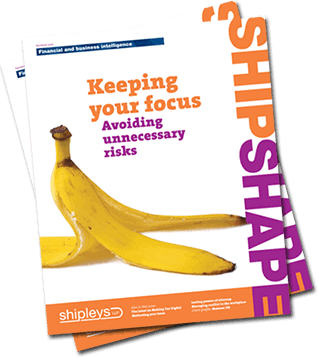According to the Charities Aid Foundation, the UK is the 6th most charitable nation in the world - topped only by Indonesia, Australia, New Zealand, the United States and Ireland - with 68% of us making some sort of regular donation to charity.
24 September 2019
So most of us are doing our bit to leave a ‘footprint in the future’, but many are not aware of the different ways donations can be made and how this can be done tax efficiently?
Giving Cash
We all know that you can give cash to a charity, either as a one off or by setting up a standing order.
You tick the little box in the bottom right hand corner of the donation form which means the charity can claim your basic rate relief and for every £1 you give the charity receives £1.25.
If you are a higher rate taxpayer, you can then also claim back the difference between your top rate and the basic rate at the tax year end.
For a 40% rate taxpayer, that means for every £1 donated, you can claim back 25p in personal tax relief.
I would bet that the vast majority of the 68% people mentioned above make their donations in exactly this fashion. But in this article, I’d like to discuss three different and more overlooked ways of giving to charity.
Giving Shares
Are you paying capital gains tax each year on share disposals from your portfolio, whilst at the same time making donations to charity? There may be a better way. Why not consider giving the shares directly to charity?
If the shares are quoted on a recognised stock exchange, this is one of the most valuable ways of donating as it benefits from both income tax and capital gains tax relief (and is also an exempt transfer for InheritanceTax).
Assuming most people, when restructuring the way they donate, would like to ensure the charity does not lose out and its receipts remain constant, the examples below are an interesting comparison.
Example: I am a 40% taxpayer and I hold quoted shares worth £35,000, which I purchased for £5,000. The real value of the shares to me is £29,680 as I will pay £3,600 in capital gains tax on sale.
I also give £35,000 to charity in the year via gift aid and claim my higher rate tax relief, reducing my income tax bill by £8,750. As mentioned above, the charity make their own gift aid claim and also receive a further £8,750, meaning a total benefit to them of £43,750.
Overall both parties are left with …
| To individual | To charity | |
|---|---|---|
| Proceeds | £35,000 | £35,000 |
| Capital gains tax | £3,600 | |
| Gift aid income tax relief | (£8,750) | £8,750 |
| Net cost to me | £29,850 | |
| Total funding to charity | £43,750 |
In contrast, had I simply gifted shares directly sufficient to leave the charity with the same receipt of £43,750, all gifts to charity are capital gains tax exempt. Plus, if quoted on a recognised stock exchange, I can claim a full 40% income tax relief on the donation. The receipt by the charity remains the same but look what happens to my personal tax position –
| To individual | To charity | |
|---|---|---|
| Share value | £43,750 | £43,750 |
| Capital Gains tax | Nil | Nil |
| Gift aid income tax relief | (£17,500) | |
| Net cost to me | £26,250 | |
| Total funding to charity | £43,750 |
By giving shares directly I have ensured the charity receive the same sum, but I have reduced the net cost to me by £3,600 simply by structuring my donation differently.
Leaving a Will Legacy to Charity
As with giving cash to charity via Gift Aid, we all know we can leave a legacy to charity in our Will. Unlike giving cash via Gift Aid, it is far less common. In a report by Smee & Ford in 2018 it was reported income from legacies forms just over 15% of all donations received by UK charities and 6.1% of the UK’s population left a bequest in a will.
Any sums left to charity on death via a Will is inheritance tax (IHT) exempt. IHT is currently charged at 40% of the value of your estate exceeding the nil rate band (currently and for the foreseeable future set at £325,000). So if your estate is worth £500,000 and you leave £10,000 in your Will to a qualifying charity you can do so at a real cost to your estate of
£6,000 as HM Revenue & Customs would have snapped up £4,000 in IHT.
There is also an additional incentive for people leaving at least 10% of their net estate to charity, as they will now pay a reduced rate of inheritance tax on the remainder of the estate, being 36%.
This may be a case of giving more to get more. Take this comparison
- I have an estate worth £1 million and on my death I plan to leave half to my spouse and the remainder to my children. The spousal transfer is exempt from IHT leaving £500,000, of which £325,000 is covered by the nil rate band. The remaining £175,000 is charged to IHT at 40% = £70,000 tax payable.
- As above but I plan to leave half to my spouse, £15,000 to charity, and the remainder to my children. Again, the chargeable sum after the spousal transfer and nil rate band is £175,000. The donation to charity itself is IHT exempt and represents 8.5% of my chargeable estate. I pay IHT on the remaining £160,000 at 40% = £64,000 tax payable.
- This time I plan to leave half to my spouse, £17,500 to charity, and the remainder to my children. The donation to charity is IHT exempt and now represents 10% of my chargeable estate so I pay IHT on the remaining £157,500 at the reduced rate of 36% = £56,700 tax payable.
Compare option 3 to option 2, I have paid £7,300 less in Inheritance Tax by giving £2,500 more to charity.
Donations from my limited company
From April 2017, corporation tax is payable at one single rate of 19%, regardless of the company’s size.
For many private limited companies, shareholders’ remuneration packages will consist of a modest salary and dividend payments, often meaning there is no income tax relief incentive in giving to charity as there may be little tax payable at a personal level.
Often overlooked is the option of your company itself making a charitable donation.There is no limit on the size of the donation and it will obtain tax relief in the company and reduce the sum payable to HMRC.
If you can find a charity that is locally based or supported, or that meshes with your business sector it may even be a good public relations boost in your community.
Specific advice should be obtained before taking action, or refraining from taking action, in relation to this summary, if you would like advice or further information, please speak to your usual Shipleys contact.
Copyright © Shipleys LLP 2019













